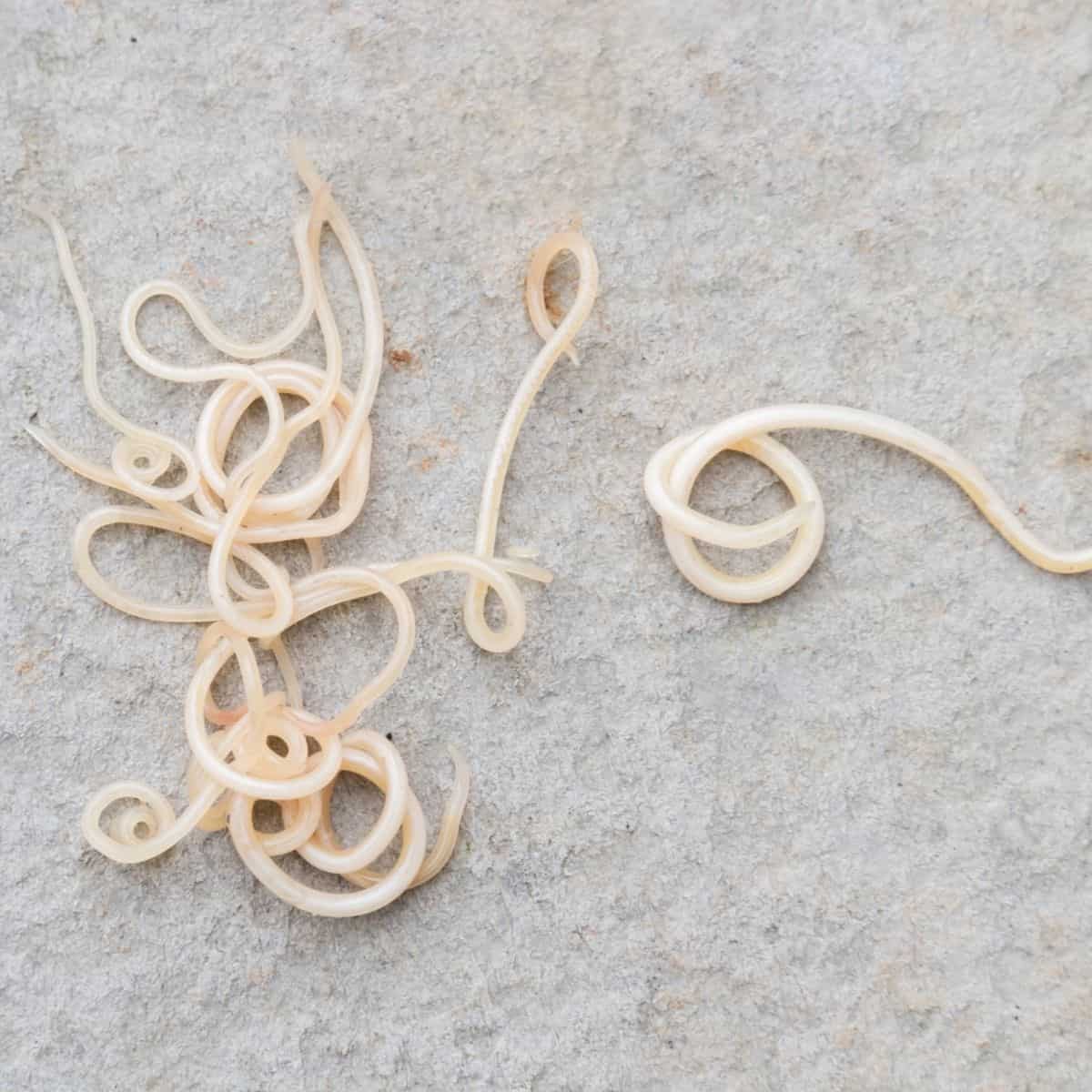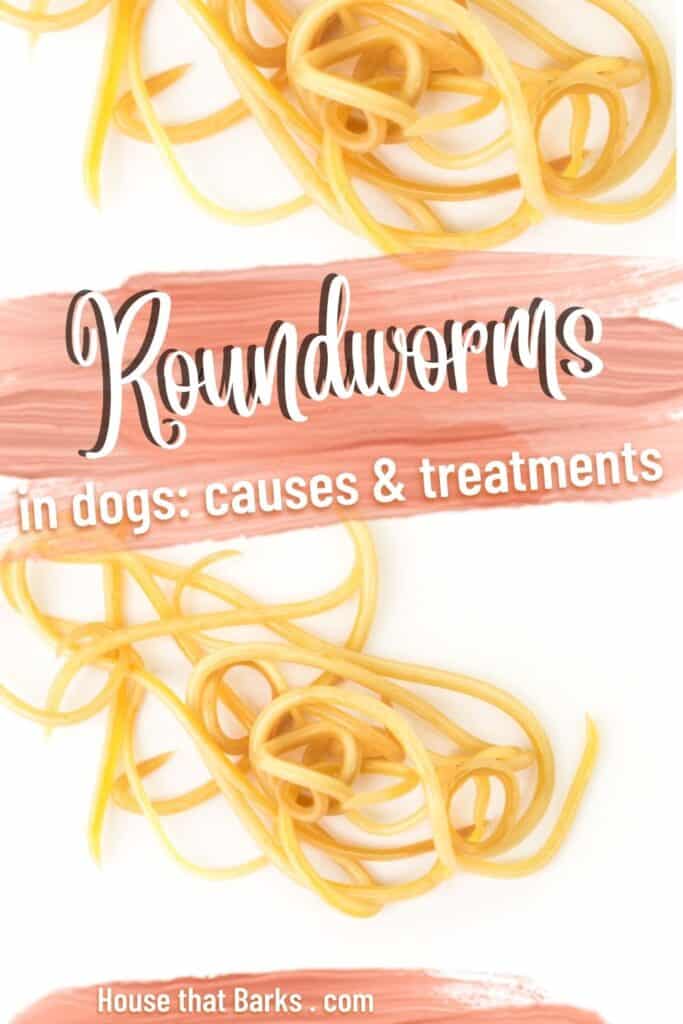How to Treat and Prevent Roundworms in Dogs
Dogs are man’s best friend. They’re loyal, loving, and always there for their owners. However, sometimes dogs get sick and need medical attention. One of the most common illnesses that dog's suffer from is roundworm infection.
Roundworms in dogs are parasites that live inside the dog’s intestines. They cause severe damage to the intestinal lining and can lead to diarrhea, vomiting, and even death. Fortunately, roundworms are easily treated with medication.
In this article, I’ll discuss the causes and treatments of roundworm infections in dogs.
A roundworm, also called a nematode or ascarid, is a parasite that lives in your dog’s intestine. They eat partially digested food which dogs get from time to time.
Puppies are more likely to get roundworms.

The Basics of Roundworms in Dogs
- Roundworms are one of the most common parasites found in dogs. They are also known as pinworms or threadworms.
- Worms are small parasitic roundworms that live in the intestines of animals. They are usually harmless, but sometimes cause problems.
- If you notice worms on your dog’s stool, there are several things you can do to treat them.
- Worms can be passed through feces, so if you see worms in your dog’s poop, you should take him to the vet right away.
What Are Roundworms?
Roundworms, also known as ascaridoid nematodes, are large intestinal parasites commonly found in puppies. Despite being more common in puppies, adult dogs can also be infected with roundworms.
There are two important species of roundworms in dogs:
In dogs, there are two main roundworm species: Toxocara canis and Toxascaris leonina.
People can also contract Toxocara canis, which is worse. The flies can grow up to several inches long and are usually white or light brown.
Basically, they resemble and look like spaghetti.
How Do Dogs Get Roundworms?
There are a few different ways that dogs can get roundworms.
From Their Mother
The most common mode of transmission of roundworms to puppies is through the placenta.
Upon swallowing the eggs, the larvae hatch, migrate through the intestines, and move into different tissues of the body. Once the larvae stop developing, they become dormant in cysts until a dog becomes pregnant.
As larvae develop during estrus, they migrate into the puppy fetus and travel across the placenta.
As pups are nursing, they can also get infected, since larvae can travel into their mammary glands.
Ingesting Roundworm Eggs
Essentially, puppies under 3 months of age may ingest the roundworm eggs, and the larvae may enter the lungs and be coughed up.
As the larvae are swallowed, they mature into adults in the intestine. A stool sample can be examined under a microscope to identify the eggs.
Eating Animals That Carry Roundworm Eggs
Eggs of roundworms can also be spread by rodents, birds, and earthworms, to name a few. Their sole purpose is to transport the eggs, which is why they are called paratenic hosts (or dead-end hosts).
The eggs of roundworms can develop inside a dog if it eats an animal that contains roundworms.

How Can You Tell if Your Dog Has Roundworms?
Can You See Roundworms in Dogs Poop?
Without a microscope, roundworms can easily be seen in the stool or vomit; however, just because you can’t see them doesn’t mean they aren’t there.
Roundworms range in color from white to pale brown and can be several inches long (up to 7 inches).
Under a microscope, it is more common to diagnose roundworms by looking at the eggs in the feces.
In adult dogs, roundworm larvae become encrusted in the body tissues after 6 months of age.
It is uncommon to find roundworm eggs in the feces since the roundworms stopped developing. Diagnosing and treating roundworms during this period can be difficult.
Roundworms in Dogs Diagnosis
Symptoms of roundworms in puppies are usually very subtle in the early stages, since the roundworms feed off the same nutrients that the puppy needs in the small intestines.
Many dogs do not exhibit any symptoms. However, here are some signs to watch for:
- Coughing
- Having a potbelly
- Diarrhea
- Vomiting
- Dull Coat
- Belly Pain
- Weakness
- Weight Loss
- Malnourishment
How to Treat Roundworms in Dogs
Deworming drugs are effective and safe. The medications include fenbendazole, milbemycin, moxectin, piperazine, and pyrantel.
First, your vet will administer one to three doses of medication with the goal of killing the adult worms. If your dog wasn’t totally free of worms when the first doses were given, he will receive follow-up doses to eliminate any remaining worms.
It is important to get the feces of your dog checked even after treatment. This should be done twice or four times a year for puppies. One to two times a year for dogs older than one year.
How to Prevent Roundworms in Dogs
It is easy for roundworms to spread. Just a single roundworm can produce as many as 85,000 eggs in 24 hours.
Many veterinarians deworm pups as early as 2 or 3 weeks old to be safe since they’re so common in puppies.
Puppies with untreated roundworms may suffer from weakness, weight loss, and stunted growth as a result of malnutrition. There are several things you can do to prevent this.
Start deworming your puppy as soon as they are born. Ideally, you’d like to do it before they reach the age of 3 weeks.
You should keep their eating, sleeping, and playing areas clean. Make sure that their poop is properly disposed of.
Pick up their waste in the yard and the park.
Playgrounds and sandboxes are not suitable litter boxes for dogs.
You should keep your dog away from small, wild animals. They may carry roundworms. Keep the dog on a leash or in a fenced yard.
Make sure your dog is receiving heartworm prevention medicine. Some medications also treat and control roundworms.
Ask your veterinarian about deworming your dog every so often if they are at high risk of infection.
To reduce the likelihood of roundworms being passed to the puppies, ask your vet about deworming your pregnant dog.
Can Humans Get Roundworms From Dogs?
Basically yes! Humans are susceptible to roundworms.
You may get infected if you have contact with contaminated dog poop or soil. It can cause eye, lung, heart, liver, and neurological problems.
Kids are at a higher risk of getting infected because they might eat soil or dog poop that contains eggs. The larvae of these eggs can encrust in various organs and cause serious illness.
By picking up after your dogs when they are outside you can help prevent roundworms in humans.
Children should not play near places where dogs have gone potty. They should always wash their hands.






Leave a Reply